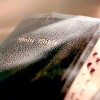“You Are A Priest Forever”

| BY SEAN CAVENDER |
In Genesis 14, the author introduces a priest-king named Melchizedek. Unfortunately, he only appears in that section of the book of Genesis. He does not make any return to the biblical narrative. However, throughout the rest of Scripture, Melchizedek becomes a model of the Messiah.
King David authored Psalm 110, which is a prophecy about the Messiah. Jesus attests that David wrote the psalm under the inspiration of the Holy Spirit (Mark 12:36). And Psalm 110 becomes the most quoted psalm in the New Testament. As such, it becomes a significant text in the Bible. In the middle of the psalm, David speaks about the Messiah’s reign as king. Then he states that God has made a promise to the Messiah that “you are a priest forever according to the order of Melchizedek” (Psalm 110:4). Thus, this obscure king-priest in the book of Genesis that has a brief interaction with Abraham becomes incredibly important in forming expectations of the role and mission of the Messiah!
The word Messiah is a Hebrew word that means ‘Anointed One.’ In Greek, the term ‘Messiah’ is translated as ‘Christ.’ Therefore, when the New Testament writers refer to “Jesus Christ,” they reference Jesus as the Messiah. They are not using “Christ” as a last name for Jesus.
Since Christians confess that Jesus is God’s Messiah, let’s consider what Psalm 110 teaches about God’s Messiah.
- The Messiah is Lord over David. The whole point that Jesus is trying to get the Jewish leaders to see is that the Messiah would come from David and be David’s son. Still, he’s also more significant than David (Mark 12:35-37) because David acknowledges the Messiah as his Lord. David’s acknowledgment implies that Messiah Jesus is inherently better than himself. The Messiah is divine and existed before David.
- The Messiah is exalted to God’s right hand. God gives the Messiah a place at His right hands so that He may rule over His kingdom and defeat His enemies. God fulfilled this promise to Jesus the Messiah after He ascended into heaven and was exalted to sit on David’s throne (Acts 2:30, 34-35). The Messiah will rule as king. God commissions His Anointed to “rule in the midst of Your enemies” (Psalm 110:2). Christ rules with a scepter of righteousness (Hebrews 1:8-9).
- The Messiah’s enemies will be destroyed, including death. The apostle Paul refers to Jesus’ reign as King and states that “the last enemy that will be abolished is death.” In 1 Corinthians 15:27, Paul then refers to Psalm 110:2. When the dead are resurrected at the second coming of Christ, Jesus will utterly destroy death. Jesus’ victory will be complete and final!
- The Messiah will be a priest on His throne. Psalm 110:4 clearly shows God’s Messiah will not only be a king, but He will also be a priest after the order of Melchizedek. In Hebrews 7, the Hebrew writer constructs an allegory based upon the obscure reference of Melchizedek. The apostle Paul created an allegory in Galatians 4:24 with Old Testament references to make a point; the Hebrew writer does something very similar. Ultimately, the Hebrew author’s point is that we get an extremely brief snapshot into Melchizedek’s life — he appears. Then he’s gone, and we never read about him again (until Psalm 110). It’s as if Melchizedek didn’t have a beginning or an end. And that’s how we come to understand the priesthood of Jesus the Messiah. Jesus holds the office of king and priest, just as Melchizedek. And by His resurrection from the dead, Jesus reigns as a priest forever (Hebrews 7:1-3, 24-25). The prophet Zechariah prophesied of one man who would ultimately hold both offices of king and priest at the same time (Zechariah 6:13). Jesus the Christ fulfills that prophecy.
- The Messiah will judge the wicked. David pictures the Messiah’s rule on the throne of God as one who will shatter kings with wrath and judge the nations. Psalm 2 pictures the same imagery with the Messiah ruling and judging the wicked nations and kings. While the Son of God is pictured as One who rules with wrath against His enemies, He is a source of refuge and grace for those who honor Him and give their allegiance to Him (Psalm 2:10-12). The Messiah is worthy of our worship, reverence, and homage because of His divine nature. He is the very Son of God. And a rejection of Jesus as the Messiah is a rejection of God’s plan of redemption (Acts 3:22-23). The Lord will judge those who do not obey His gospel, and He will come with wrath and vengeance (2 Thessalonians 1:5-9).
The Messiah is ruling at God’s right hand. We must obey Him since He is God’s Son, and He is our Lord and Christ! Jesus offers eternal life for those who find refuge in Him (Psalm 2:12). Yet, for those who reject His gospel, He will judge and send them away from His presence for eternity.
Are you prepared to obey the gospel of God’s Messiah?



